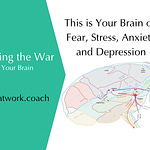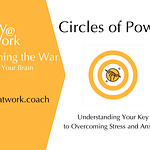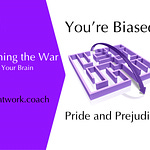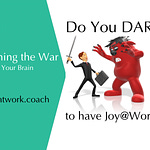Purpose: To equip you with purpose to lead and inspire your staff and to manage uncertainty with command intent, to emerge powerfully, ready for the new normal. Process: I'll explain how uncertainty causes stress because our brain craves certainty, purpose, and direction and lastly how you can be a different type of leader, the sort of leader who provides the very certainty, purpose and direction that will empower you to emerge stronger. Payoff: You'll learn how to energise your staff to continue in the face of difficulties. You'll know how to communicate certainty, direction and purpose and what success on the other side of the current difficult time looks like and how you and your now continuity energised staff will achieve it. Times of crisis demand a different type of leader where the only certain thing is that there is no certainty. Dr John Kenworthy Uncertainty causes stress, and we go into our "critter state" Your brain has a single primary concern: to keep you in the "not dead" state. That is its first and foremost function. It really doesn't matter how brilliant, rich or talented you are when you are in the "dead" state. When the world around us becomes even a little uncertain, your brain is marvellously designed to allow your older "critter brain" to take charge of survival. In a time of crisis, the "critter brain" rules the day until you deliberately choose to intervene. For leaders who haven't been close to a crisis before, managing during such times can feel thrilling. Your brain triggers norepiphrene and adrenaline spikes as you make decisions and take action. You feel a sense of adding tangible value. The stress hormone, cortisol, steadily builds up in your body and pressures from the home front add to your anxiety. The longer you struggle, directionless through a crisis the more stress and anxiety builds up that could blow any second. Before long, more people look to you for decisions and direction as they begin to flounder trying to make sense of the latest information and like Sisyphus, you discover the boulder you are pushing uphill becomes less stable with each step. Leaders need to guide people towards the best possible outcome over time. Your focus is on what is likely to come next and preparing to meet it. You go beyond the immediate to anticipate the next three, four or five obstacles. At the same time you need to address the urgent needs of the business, making immediate choices and allocating resources quickly and decisively. On any normal day your "critter brain" is assessing the environment asking three questions: Am I safe? Do I belong? and Do I matter? This isn't a once in a while process, it is every minute of every single day. "Am I safe?" is simply checking your surroundings for threats. An "all is well" response allows your brain to relax for a brief moment and if this extends for some time, you will physically relax and your brain waves will slow down. When "Am I safe?" gets the answer: "No" then the amygdalae are brought swiftly into the action, the stress hormone norepinephrine production is triggered in your brain and your body produces adrenaline is ready for "freeze, flight or fight". If the threat is not judged to be imminent, the "Do I belong?" question may get out to check on the whereabouts of fellow tribe members. After all, who wants to face a ravenous wolf alone? If there is a wolf, the "Do I matter?" question probably doesn't even get a cursory glance. A crisis is, by definition, a time of intense stress, difficulty or danger. Even if you only experience it through a social media feed or a news bulletin. Our safety is being threatened in a crisis. And in times of difficulty or danger, we're usually better of with our tribe on our side. At least then we might stand a chance of survival, let alone emerging triumphant and ready for the post-crisis world. A great leader knows this and pulls and energises the team together towards a clear
Joy@Work Podcast
Helping marketplace leaders #UnStuck their true potential to thrive in life and leadership to build a successful, sustainable business with collaborative, high performance teams and Joy@Work with practical, neuroscience-based AdvantEdge Guides and coaching.
Helping marketplace leaders #UnStuck their true potential to thrive in life and leadership to build a successful, sustainable business with collaborative, high performance teams and Joy@Work with practical, neuroscience-based AdvantEdge Guides and coaching.Listen on
Substack App
RSS Feed
Recent Episodes













Share this post